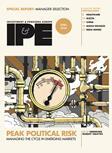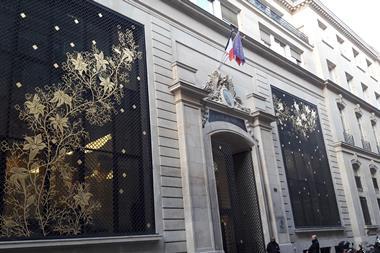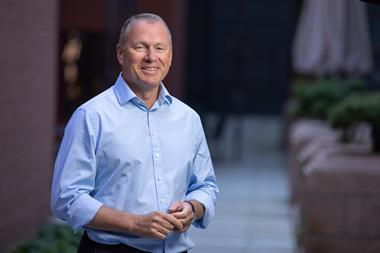With the implementation of an extensive privatisation programme fo-cused mainly on the telecoms and electricity sectors, Brazil should attract considerable investor interest in the next 12 months.
The most significant sell-off, scheduled for just under a year's time, is that of Telebras, the state telecommunications company, in the world's largest-ever telecom's privatisation.
Other planned sell-offs in-clude regional electricity generating and distribution companies such as Furnas, Electrosul, Chesf, Electronorte, CPFL, CESP and Electropaulo.
The total expected revenues from privatisations is $13bn this year, predicted to rise to $30bn in 1998 and 1999.
However with its large budget deficit, and with investors chastened by the experience of the Asian devaluations, enthusiasm is tempered by the higher level of risk.
Commenting on the sell-offs, Hans van Oort, a broker with ING Baring in London, says: We look very favour-ably on the prospects for the electricity and the telecoms sector.
"We expect billions of dollars worth of privatisations in the next eight or nine months."
Van Oort adds that a lot of these shares are already trad-ed on the market, but are currently state controlled with consequent inefficiencies.
Mohamed Mourabet, sen-ior equity portfolio manager, with Citibank Global Asset Management in Brazil says that after the Asian difficulties and given the current ac-count deficit, investors are cautious
However he believes that the privatisation revenue should be enough to meet the shortfall and that it more than compensates for the negative sentiment with re-gard to the macro picture.
"The privatisations will bring a big foreign capital inflow which is going to plug the gap in the current ac-count," says van Oort.
Examining the broader economic picture, Paul Rogers, Boston-based co-lead portfolio manager of the Scudder UK Latin America Investment Trust says: "Bra-zil's economy has made great strides since the implementation of the Real plan."
He adds that inflation has come down significantly al-though interest rates are still high and may go higher in the next few months.
"That will not be great for the private sector but mo-mentum will come from the privatisations to drive the stock market."
On the bond side, Luis R Luis, Scudder's head of em-erging market bonds in Bos-ton, says that investors are cautious because of the Asian devaluations with investors regarding Brazil as a vulnerable market.
"I think that bonds, looking three months ahead, are at-tractive. They have been ov-erly discounted due to currency concerns."
He is particularly enthusiastic about long bonds. "Our view is that you can find val-ue," he says.
He adds that Brazil is also likely to announce an ex-change proposal covering some Brady bonds in coming months.
In terms of stock selection all analysts favour the telecom and electricity sectors. Mourabet is also strongly positive on oil company Petrobras. "We like the coming up-grades in reserves and joint venture announcements."
He also expects regional generator Electrosul to be privatised next year, but he adds that the election time-table and resulting constraints may have an impact on other sell-offs.
"We wonder if Furnas will be privatised next year be-cause there are many other issues that will be at the forefront of the agenda."
Van Oort adds: "It looks like the big international players in telecoms, Bell Atlantic, AT&T and Telefonica are looking to increase their presence in this high growth region." There is, he adds, similar interest from electricity generators.
Scudder's Rogers also favours these sectors while in the longer term, unlike other analysts, he is positive on consumer non-durables.
Mourabet and van Oort currently show little enthusiasm for Brazil's private sector. "We are watching the economy very closely. The earnings momentum has slowed but we still like core second liners such as Burmah and Pao de Acucar." says Mourabet.
The risks clearly come from the current account difficulties with some limited political risk because of next year's presidential election.
"Many foreign investors have taken Cardoso's re-election for granted. There could be some downside if adverse opinion polls are published," warns Mourabet.
Rogers adds: "The economics are more difficult than a year ago in that the current account deficit is growing and a growing trade balance needs to be kept in check."
However, he has less currency worries because the real has slowly been depreciated against the dollar using what Rogers describes as a crawling peg.
"With inflation low, and continuing gradual devaluation they should correct the current over-valuation without the need for drastic measures," he adds. John Lappin"












No comments yet